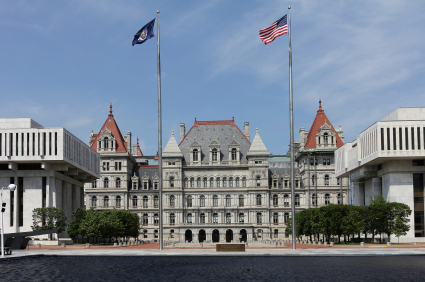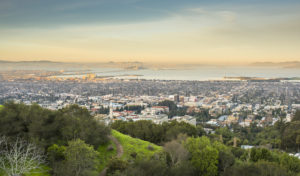
Bar applicants now required to complete fifty hours of service.
Law students who graduate this spring will soon face a new hurdle if they seek to practice law in New York: fifty hours of qualifying pro bono work will be required for admission to that state’s bar.
Last May, New York’s highest court became the first in the country to adopt the mandatory pro bono requirement for new attorneys. New York’s rule is pathbreaking among states because public service is now necessary for admission to the state’s bar—not simply an aspirational standard.
Regulations on lawyers’ conduct are not new—after all, practicing lawyers in most states must complete continuing legal education classes to maintain an active law license, and for many decades, state bar associations have established and enforced ethics requirements for lawyers. Regulations on pro bono services are also not new. Nearly all states already have aspirational rules on the books that encourage their practitioners to provide pro bono services annually or make financial contributions to legal aid organizations. A handful of states even require annual reporting of lawyers’ pro bono hours.
However, not everyone agrees that the new regulations will address the problem of inadequate access to justice for New York citizens, as Chief Judge Jonathan Lippman of the New York Court of Appeals has suggested. According to a report in Bloomberg BNA, lawyers have expressed concerns that legal services programs might be “burden[ed] . . . with extra supervisory responsibilities” by an onslaught of volunteers seeking pro bono hours. Others worry that new, inexperienced lawyers might provide low-quality legal services to pro bono clients.
Others predict positive results over the long term from the new pro bono requirement. Several New York law professors have suggested that the move by New York will help to resolve the large disparity in access to legal services, claiming that although about one in every 429 Americans are lawyers, the legal aid system has in place only one attorney “for every 6,415 individuals who qualify for federally funded legal assistance.” They also argue that early exposure to pro bono service will increase students’ interest in offering pro bono service throughout their careers.
Earlier this summer, the New York State Bar Association announced opposition to the rule in a letter to Chief Judge Lippman. The association expressed frustration with the lack of transparency in the high court’s deliberative process. The group also criticized what it calls an “invasion of privacy” that will result from a component of the new rule requiring mandatory public disclosure of an attorney’s completed pro bono hours. After several months of deliberations between the association and the Administrative Board of the Courts, the court recently agreed to defer, for several months, the public disclosure component of the new rule.
New York’s bar requirements may have spurred a trend. A California task force earlier this year recommended that newly minted lawyers be required to complete fifty pro bono hours as a condition of entry to that state’s bar, and a judicial working group in New Jersey is currently considering a similar rule – although that state’s bar association has already come out against the idea. If either of the reviewing panels decides to mandate the pro bono requirement for new attorneys, the state’s Supreme Court will consider the rule for approval after a public comment period.
Perhaps in light of the controversy around New York’s pro bono requirement, New Jersey is treading cautiously. Last July, the state’s largest pro bono provider, Legal Services of New Jersey, came out against that state’s proposed pro bono requirement, arguing that the proposed rule ignores economic realities and does not address the poor’s most significant legal needs. A working group commissioned by New Jersey’s chief justice is still trying to address the legal service organization’s concerns.
New York’s pro bono regulations will take effect in January 2015. The regulations will affect current third-year law students, most of whom will take the state bar examination in July 2014 and find out their results in mid-November. (These graduates must apply for admission to the bar after receiving a passing grade, a process that can take several months, extending the timeline into early 2015, and rendering them subject to the new reporting requirements.) Students in all future graduating classes who seek to join the bar in New York will also be subject to the fifty-hour pro bono requirement.



